Protest against fast track deportations: On 5th May 2014, the early May bank holiday, protesters went to Harmondsworth Immigration Detention Centre close to Heathrow in solidarity with the prisoners inside who had gone on mass hunger strike against the unfair ‘fast track’ system which denies many a proper hearing. The were also protesting against other problems in the private-run prison.
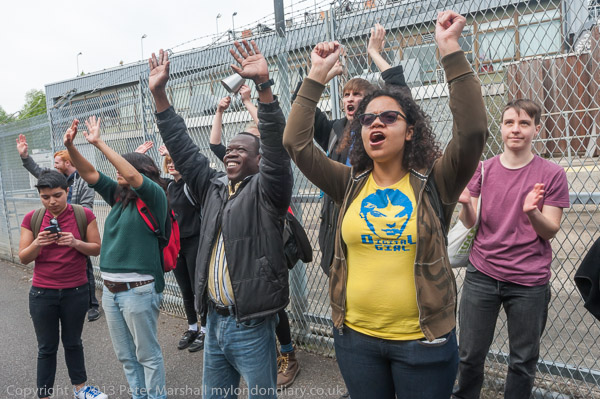
The hunger strike by over 300 men held at the centre was sparked off by the failure of the only fax machine at the centre, an essential service for those trying to prepare their case to gain asylum in the UK.
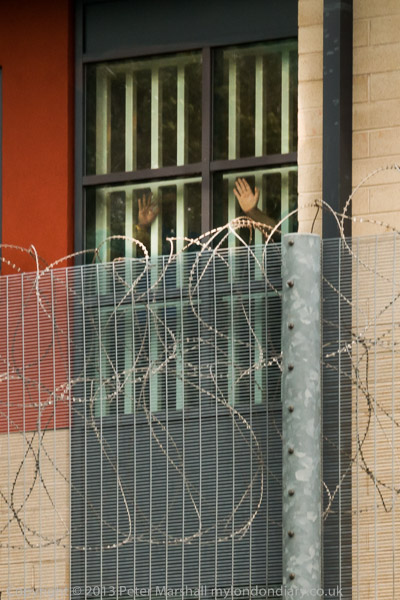
The strike was suspended over the weekend after Home Office officials met delegates from the hunger strikers and promised to give answers to their demands on Tuesday, 6 May.
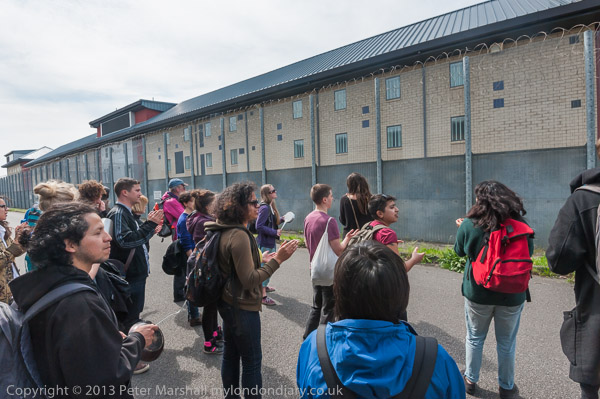
Detained Fast Track (DFT) was first introduced by New Labour, but its use had expanded under the coalition government. As I noted, it “is inherently unfair, giving asylum seekers little or no time to prepare their cases and has resulted in many unfair decisions. It disadvantages those in most need of asylum who are unlikely to have prepared essential documents in advance and to be in a condition to represent themselves effectively. And as they are held in detention it is very difficult or impossible for them to prepare a case, particularly when communication with the outside world is limited and difficult.“

As well as being unfair, DFT is also expensive, thought to at least double the costs to the country for every asylum seeker held in detention, though the government does not release the exact figures. But despite the cost, the quality of accommodation and services in the detention centres is extremely poor. Many of those held have medical problems, often linked to the reasons why they fled their countries and there has been a desperate lack of proper healthcare at this and other immigration detention centres.
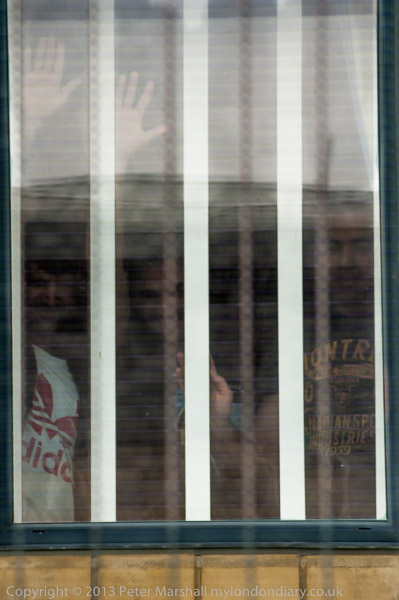
It’s hard to escape the feeling that many in the Home Office – including those in charge – have lost any feeling of compassion for the desperate people who seek asylum, seeing them as a threat to our country, best locked away and as far as possible out of mind. In my post on the protest I mentioned the case reported by HM Inspectorate of Prisons of an 84 year old man suffering from dementia who died after being held for almost 3 weeks without and proper medical attention before being taken to hospital in handcuffs.
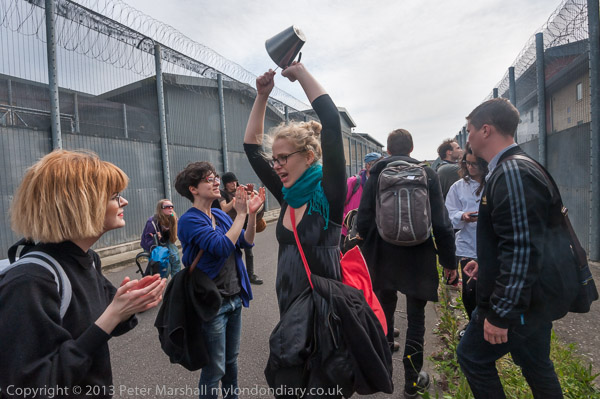
Hard too not to see the incompetence often displayed as deliberate, as in the case of those held sometimes for over a year after having agreed to voluntary repatriation or those transferred to here for interviews in London and then abandoned here rather than being returned to other detention centres to continue to consult with their lawyers and have family visits.
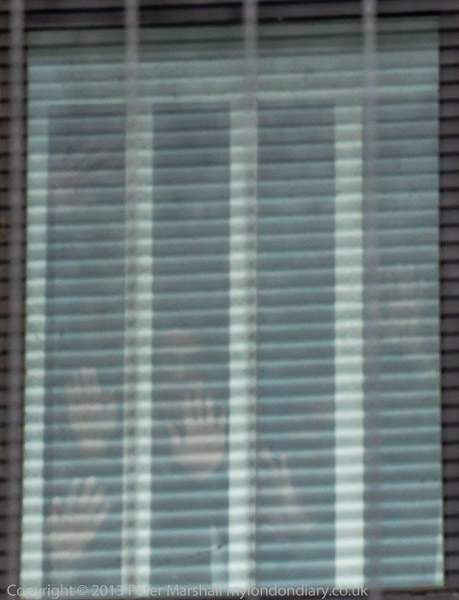
Difficult to understand the lack of legal help and advice at this and other centres enabling the detainees to prepare their cases, and the many holdups that they encounter in doing this – even when the fax machine is working.
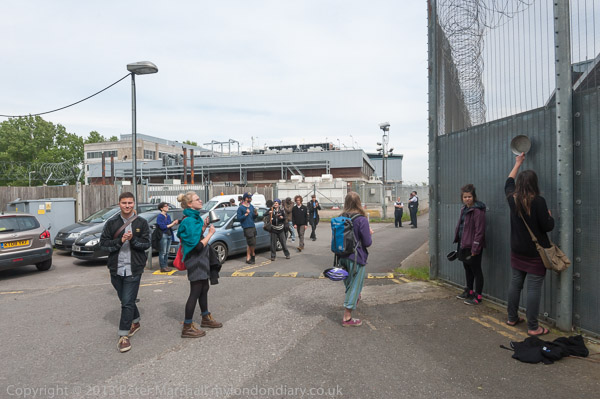
Probably the main changes that have taken place at Harmondsworth since this protest nine years ago is that the prison, together with its neighbour Colnbrook are under a new private management and that security and police presence has been considerably tightened. In 2014 the protesters were able to walk down the private road leading to a BT site between the two prisons and continue around the outside of the 20ft high prison fence. Since then protests have been restricted to the front of the building, out of sight of the prisoners. Back in 2014 the police told them that so longs as they behaved sensibly and caused no trouble they would be allowed to protest – and they were.
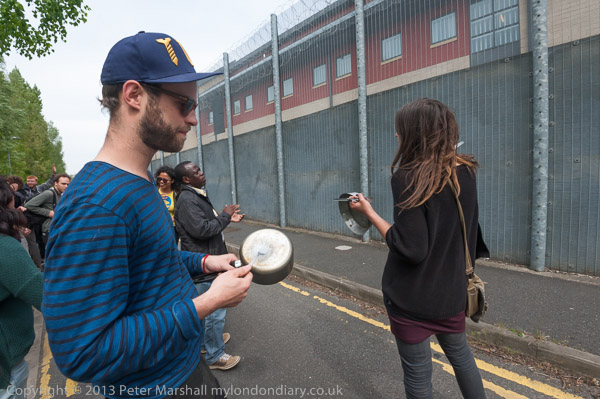
Later in 2014 the High Court ruled that the Detained Fast Track procedure was was unlawful, though the Home Office appealed and eventually only minor changes have been made. The process is clearly in breach of international law, as is the wholesale detention of asylum seekers.
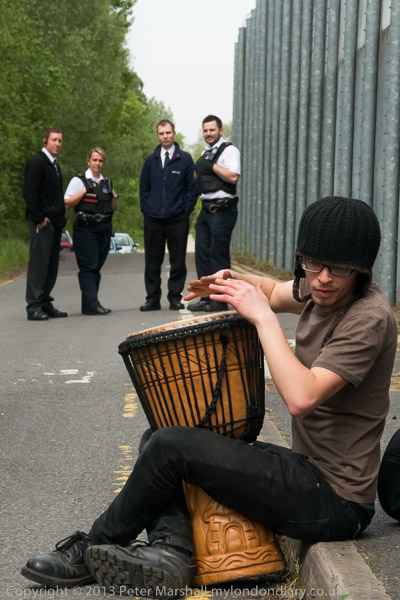
As recently as 2018 the UK again committed to a declaration that it would “ensure that any detention in the context of international migration follows due process, is non-arbitrary, is based on law, necessity, proportionality and individual assessments.” Current and proposed UK policies break every aspect of this commitment and other aspects of international law, much of which was driven by the UK and to which successive governments have at least paid lip-service. Our current government has declared it will ignore those aspects it finds inconvenient.
More on the protest at Support Harmondsworth Mass Hunger Strike.